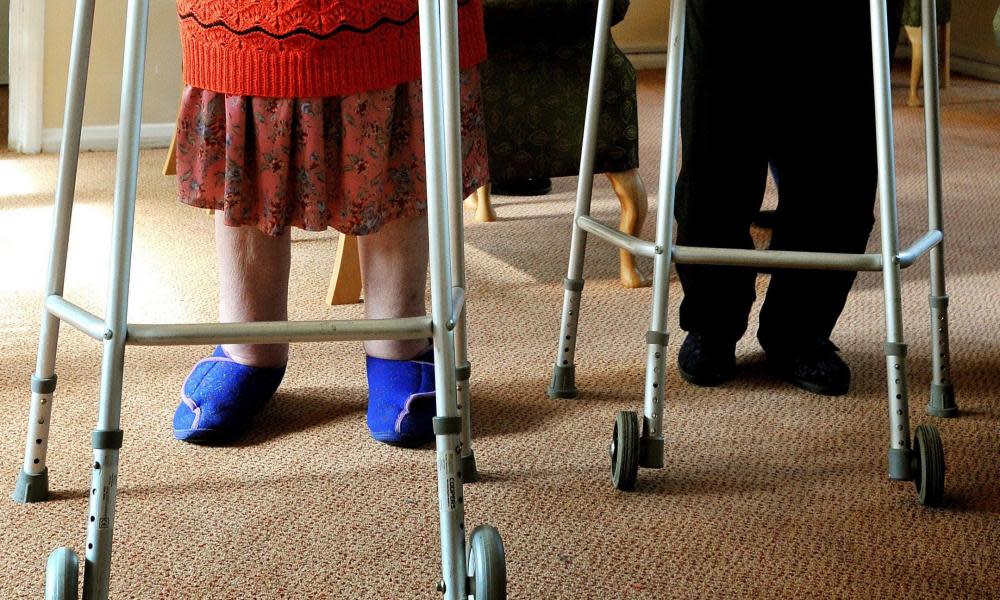The Conservatives’ solution for unaffordable care? No care | Barbara Keeley

Despite evidence that life expectancy may be stagnating, the century-long rise should be a cause for celebration. However, for too many people – unsure whether they will be able to afford the care they may need or to plan for the future – their later years are proving to be a time of fear and uncertainty.
Now we learn there will be insufficient care home places, even if people could afford them: 71,000 more care home beds will be required within eight years – according to a Newcastle University study – to meet the demands of an ageing population living longer, with complex care needs. But there is little hope that these places will materialise.
Residential and nursing homes are already under unprecedented pressure. By the end of this financial year, £6.3bn will have been cut from social care budgets since 2010, with local authorities facing a £2.3bn care funding gap by 2020. These severe cuts, along with rising costs and problems of retaining and recruiting staff, mean that one in six care homes is now displaying signs of financial stress, and across England residential homes are closing.
And in the coming months, the signs are that things will get worse. The Association of Directors of Adult Social Services has reported that councils will have to cut social care budgets by a further £824m this financial year alone – meaning fewer older people getting the help they need with basic tasks such as washing, dressing and eating.
The Conservatives’ policy of cutting funding and leaving people to fend for themselves is simply not working. It has left us with 1.2 million older people living with unmet care needs, one in 10 facing catastrophic costs, and relatives forced to give up work to look after them. Although the Tories backed down from their “dementia tax” plans, more than 70% of people in residential care have dementia, and they face the highest care costs.
These harsh realities are brought home through the many cases I hear about, both in my constituency and in parliament. Cases like the woman whose homecare was cut suddenly from 10 hours a week to nothing. Her son had to step in to care for her, risking his job, which financially supported them both. Or the elderly people left without food or help with bathing when care staff did not turn up.
If this apathy towards the social care crisis continues, there is a risk not only of insufficient care beds, but of serious care failures.
In Labour’s manifesto, we set out comprehensive plans to tackle the short-term funding gap in social care, promising £1bn this year and £8bn over this parliament to stabilise the sector. This would enable us to close the funding gap, implement a living wage for care workers and enable an extra 36,000 people with high levels of need to receive publicly funded social care.
But we also recognised the need for a long-term funding solution to meet the needs of an ageing population. Labour’s national care service would be based on the principle of pooling risks, so that no one is left to face catastrophic care costs alone. A care cap would ensure those unlucky enough to develop conditions like dementia would not be penalised for doing so. And we would raise the asset threshold, so that no one loses everything they own, as well as introducing free end of life care.
Enough is enough. This government has had ample wake-up calls. Now it must give social care the funding it needs and develop a long-term plan to put the sector on a sustainable footing – so that today’s generation of older people and those to come get the care they need and deserve.
• Barbara Keeley, Labour MP for Worsley and Eccles South, is shadow minister for social care and mental health

 Yahoo News
Yahoo News 
